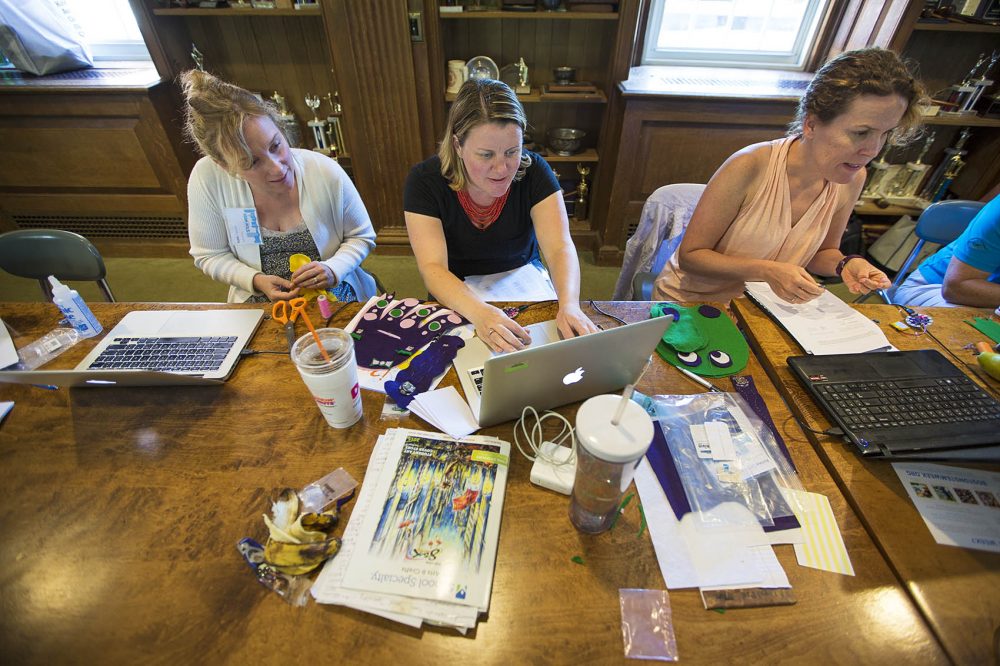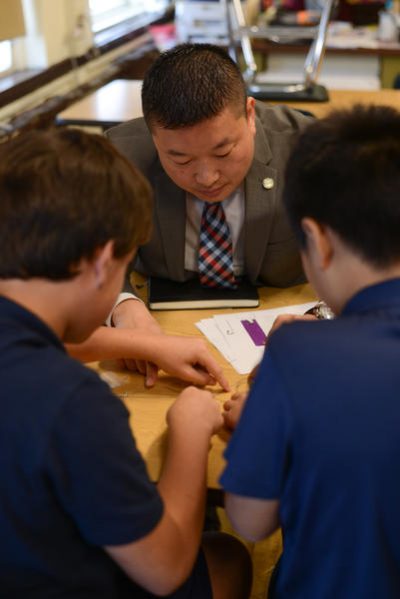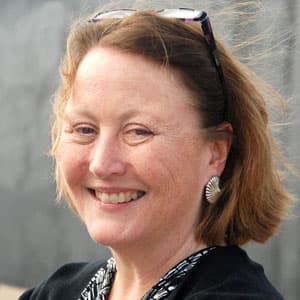Advertisement
With Week Of Hands-On STEM Projects, Boston Middle Schools Foster Science Passions, Career Prep
Resume
A dozen kids sit at tables in a classroom at the Perry School in South Boston. Usually, it's a math class. But this week it's a lab for building monsters.
"We’re building an interactive friendly monster," says seventh-grader Alex Burkett. "Mine is the evil emoji, the red one with the horns."
The "monster" is part of Boston STEM Week: a week-long effort in Boston Public Schools to give middle school students a chance to appreciate science and technology.
Superintendent Tommy Chang says it's an experience students want.
"Kids have a passion for science, for technology, for engineering and math," Chang says. "And so that’s why we’ve just gotta give them those opportunities to engage in this work."
So, this week, most of Boston's 48 public middle schools are putting aside English papers and history lessons. Instead, they're having about 6,000 students focus on hands-on science, technology and engineering projects.
Some students are practicing surgical techniques. Others are designing video games, exploring ways to purify water on the moon, or building these little monsters.
Burkett holds up the creature he sewed together out of red felt. He points out a disc sewn on its back — a tiny computer processor.
"We’re going to wire this to the LEDs on the monster," he explains. "And it’ll make the LEDs blink the way we programmed it to do on the computer."
Burkett's teacher, Adam Kidd, made his own monster this summer.
"It's kind of like a flame monster, or maybe an angry tomato," Kidd says. He presses it, and it pings out a few bars of "Hot Hot Hot."
Like the other teachers who are participating in Boston STEM Week, Kidd spent a week this summer training for the program. They learned to do the same exercises they're teaching their students this week — and it wasn't always simple.
"It's a complex project, even for adults," Kidd says. "I mean, a lot of the adults struggled with it. So I think it's great to give our kids that type of project."
It also meant, for both kids and adults, learning several new skills.
"We’re learning how to sew, how to program, how to wire stuff," Burkett says. "A lot of things."

As a former science teacher, Chang likes this kind of learning.
"The best way to learn is if you do it yourself," he says. "It’s not about sitting here and reading from a textbook. It’s about actually doing the science."
Perry School principal Geoff Rose says that's what education should be — not just during STEM Week, but all year long.
"Although this is a special week for us, we don’t want this to just be a special week," he says. "We want this to be the vision of what our schools are doing, with cognitively demanding tasks each day, and tasks that engage their minds and their bodies in a productive way."
That would be fine with Burkett.
"It's so much better than regular classes," he says, "because you actually get to do stuff instead of listening to lectures about 2 plus 2 equals 4, 9 times 9 equals 81, all that."
Supplies and teacher training for the week cost between $1.5 million and $2 million, paid by foundation and corporate sponsors. (MIT served as a curriculum partner, and MathWorks, which also supports WBUR, was a founding sponsor.) The superintendent sees the payoff.
"They are completely focused," he says during a visit to Kidd's classroom. "They don’t care who the heck is in this room" — even though the people in the room include the superintendent, the mayor, the chair of the Boston School Committee and visitors from other states who may adapt the STEM Week curriculum themselves.
Chang says students need science and technology for more than school. They need it for work — for the jobs that he hopes this kind of education will prepare them to have.
Updated to provide details of the program's outside support.
This article was originally published on October 06, 2016.
This segment aired on October 6, 2016.
